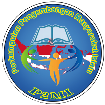Kontribusi Bank Sampah Terhadap Pemberdayaan Masyarakat Gampong Blang Krueng Aceh
(1) UIN Sunan Kalijaga Yogyakarta
(2) Universitas Malikussaleh
(3) UIN Ar-Raniry Banda Aceh
(*) Corresponding Author
Abstract
This study aims to determine how the waste management system in the waste bank of Gampong Blang Krueng and how the contribution of the waste bank to community empowerment in Gampong Blang Krueng. This research is a qualitative research, the method used in this research is descriptive, the aim is to provide a clear picture of the state of the object under study based on the facts that appear as they are. The data collection techniques in this study used, observation, interviews and documentation. The results showed that the contribution of the waste bank to community empowerment was divided into two aspects, namely the aspect of building public awareness and the aspect of empowering the productive economy of the community. The first aspect is to build public awareness in managing waste. The second aspect is empowering productive economic communities, which means managing waste that can be recycled and then producing goods of value for resale.
Keywords
Full Text:
PDFReferences
Budiman, M. N. (2004). Pedoman Penulisan Karya Ilmiah Skripsi (PhD Thesis). Tesis dan Disertas. Banda Aceh: IAIN Ar-Raniry.
Conny, R. S. (2010). Metode Penelitian Kualitatif. Jakarta: Grasindo.
Fitria, F. (2021). Pemberdayaan Ekonomi Masyarakat Melalui Bank Sampah (studi Kasus Bank Sampah Kota Prabumulih). ADL ISLAMIC ECONOMIC: Jurnal Kajian Ekonomi Islam, 2(1), 1–14.
Indonsia, P. R. (n.d.). Undang-undang Nomor 18 Tahun 2008 tentang Pengelolaan Sampah. Jakarta: Sekretariat Negara Republik Indonesia.
Noor, J. (2016). Metodologi Penelitian: Skripsi, Tesis, Disertasi dan Karya Ilmiah.
Purwanti, W. S., & Haryono, B. S. (2015). Perencanaan Bank Sampah dalam rangka pemberdayaan masyarakat di kecamatan kepanjen kabupaten Malang. Reformasi, 5(1), 149–159.
Rudi Hartono. (2008). Penanganan dan Pengolahan Sampah. Penebar Swadaya Grup.
Saleh, H., Surya, B., & Hamsina, H. (2020). Implementation of sustainable development goals to makassar zero waste and energy source. International Journal of Energy Economics and Policy, 10(4), 530.
Septiani, B. A., Arianie, D. M., Risman, V., Handayani, W., & Kawuryan, I. S. S. (2019). Pengelolaan Sampah Plastik di Salatiga: Praktik dan Tantangan. Jurnal Ilmu Lingkungan, 17(1), 90–99.
Setyaningrum, I. (2015). Karakteristik Peningkatan Pengelolaan Sampah Oleh Masyarakat Melalui Bank Sampah. Teknik PWK (Perencanaan Wilayah Kota), 4(2), 185–196.
Singhirunnusorn, W., Donlakorn, K., & Kaewhanin, W. (2012). Contextual factors influencing household recycling behaviours: A case of waste bank project in Mahasarakham municipality. Procedia-Social and Behavioral Sciences, 36, 688–697.
Subqi, I., & Albab, U. (2019). Model Pengelolaan Sampah di Kelompok Paguyuban Peduli Sampah Kalibeber Wonosobo. Jurnal Pemberdayaan Masyarakat: Media Pemikiran Dan Dakwah Pembangunan, 3(2), 451–476.
Sucipto, C. D. (2012). Teknologi pengolahan daur ulang sampah. Yogyakarta: Gosyen Publishing.
Suryani, A. S. (2014). Peran bank sampah dalam efektivitas pengelolaan sampah (studi kasus bank sampah Malang). Aspirasi: Jurnal Masalah-Masalah Sosial, 5(1), 71–84.
Wulandari, D., Utomo, S. H., & Narmaditya, B. S. (2017). Waste bank: Waste management model in improving local economy. International Journal of Energy Economics and Policy, 7(3), 36–41.
DOI: 10.24235/empower.v7i1.10153
Article Metrics
Abstract view : 56 timesPDF - 11 times
Refbacks
- There are currently no refbacks.
Copyright (c) 2026 Empower : Jurnal Pengembangan Masyarakat Islam

This work is licensed under a Creative Commons Attribution 4.0 International License.
 Empower : Jurnal Pengembangan Masyarakat Islam
Empower : Jurnal Pengembangan Masyarakat Islam















